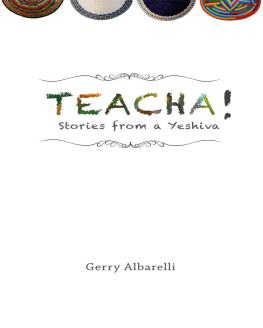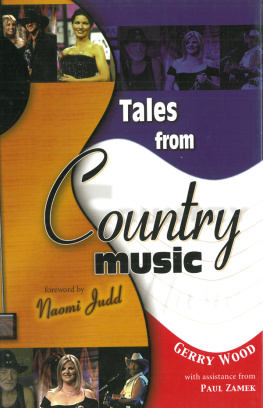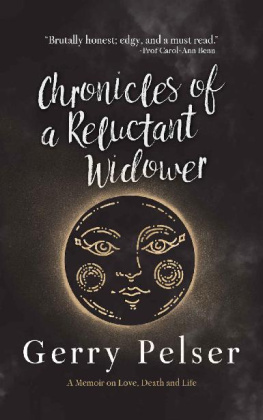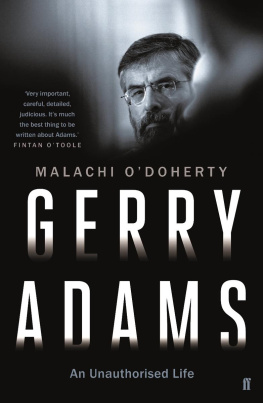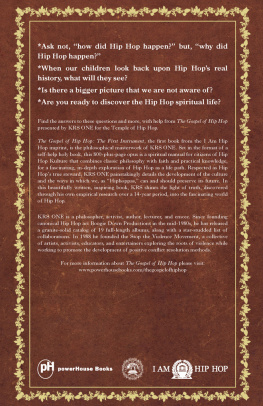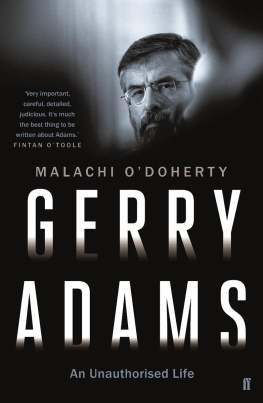Gerry Albarelli - Teacha!
Here you can read online Gerry Albarelli - Teacha! full text of the book (entire story) in english for free. Download pdf and epub, get meaning, cover and reviews about this ebook. year: 2014, publisher: Dzanc Books, genre: Detective and thriller. Description of the work, (preface) as well as reviews are available. Best literature library LitArk.com created for fans of good reading and offers a wide selection of genres:
Romance novel
Science fiction
Adventure
Detective
Science
History
Home and family
Prose
Art
Politics
Computer
Non-fiction
Religion
Business
Children
Humor
Choose a favorite category and find really read worthwhile books. Enjoy immersion in the world of imagination, feel the emotions of the characters or learn something new for yourself, make an fascinating discovery.
- Book:Teacha!
- Author:
- Publisher:Dzanc Books
- Genre:
- Year:2014
- Rating:3 / 5
- Favourites:Add to favourites
- Your mark:
- 60
- 1
- 2
- 3
- 4
- 5
Teacha!: summary, description and annotation
We offer to read an annotation, description, summary or preface (depends on what the author of the book "Teacha!" wrote himself). If you haven't found the necessary information about the book — write in the comments, we will try to find it.
Teacha! — read online for free the complete book (whole text) full work
Below is the text of the book, divided by pages. System saving the place of the last page read, allows you to conveniently read the book "Teacha!" online for free, without having to search again every time where you left off. Put a bookmark, and you can go to the page where you finished reading at any time.
Font size:
Interval:
Bookmark:
Teacha! Stories from a Yeshiva
Gerry Albarelli
Dzanc Books
Dzanc Books
1334 Woodbourne Street
Westland, MI 48186
www.dzancbooks.org
Copyright 2000 by Gerry Albarelli
All rights reserved, except for brief quotations in critical articles or reviews. No part of this book may be reproduced in any manner without prior written permission from the publisher.
Published 2013 by Dzanc Books
A Dzanc Books rEprint Series Selection
eBooks ISBN-13: 978-1-937854-45-4
eBook Cover by Leonardo Rezende
for my parents,
and for Leonardo Rezende
Contents
Yeshiva
I saw an ad in the paper:
English teacher wantedyeshiva
Brooklyncall Rabbi Steiner
Since I was living in Brooklyn and had taught English before, I called. Rabbi Steiner was busy, but he called back a few days later. He asked to see me, saw me, and hired me. He said, Based on your background, I think youll work out here. To be honest with you, public school teachers dont work out here. They dont last. He also said, Think of it this way: youre going to Mars. These boys live in a very insular world. Not one of them has a television set. They speak Yiddish at home; some dont speak any English at all. Were up against the impossible.
About ten minutes later he was walking me to the door of a classroom, the class of a young teacher, saying, Hes very good, as he opened the door and I walked in. Stay ten, fifteen minutes. Dont stay longer than fifteen minutes.
The teacher, a young man, athletic in appearance, wearing a yarmulke but not Hasidic, was teaching the boys, second-graders, to subtract. He kept yelling at them; he was very fast, wagging his finger at some of them, threatening to send them to the principal, and with his other hand, he held the chalk. He was saying: Okay! Nine from five, cant do it, the one in the next column gives ten to the five, nine from fifteen After about ten more minutes he saidin the same tone and rhythm hed been using with the boys, so that at first I didnt realize he was talking to meCan I see you out in the hall?
Out in the hall, just outside the door, he said, Discipline is the key. From the first day, you have to discipline them. I became their friend, now they dont respect me.
The door kept opening while we were talking. A boy would look out and the teacher would affectionately and forcefully push the boys head back inside. One boy came all the way out into the hall. Like this one, he said, putting his hands on the shoulders of a boy who stood to about his waist. Yesterday I had towhat did I have to do to you yesterday? I picked him up like this, he said, lifting the boy off the ground and pressing him hard against the wall, and I smashed him against the wall because he kept talking. And he laughed. He laughs! he said as the boy laughed again, dangling in midair and looking down. Teacher doesnt discipline his class, he doesnt last here.
Then the vice principal walked over to us and escorted me back to Rabbi Steiner. So, what do you think? Rabbi Steiner said. You wanna give it a try?
Outside, on the street, it was dreary; there was the sound of trucks passing by and of trains passing overhead. I was walking to the elevated train. This was Brooklyn, the Hasidic section of Williamsburg. I walked past a factory, housing project, video rental stores with their blinking lights outlining the windows.
What are we going to do with you today, Mr. Albarelli? Rabbi Steiner said when he saw me standing in the crowded office the next day. Why dont you sit in on a couple more classes. He put his hand on my shoulder and steered me out into the hall. A couple of boys ran up to him right away. Might as well see what youre getting yourself into, Rabbi Steiner said, winking.
He left me at a classroom on the second floor. These were older boys, sixth-graders, taught by a lay teacher, a middle-aged man, bald and paunchy, who kept his voice raisedwho yelled at the boys from when I walked into the class until I walked outalthough he did look at me and smile every once in a while.
Gentlemen, the teacher was saying as I made my way to the back of the room, I am not dealing with the second-grade class! I want the fooling around to stop. I want you to move it over so move it over! I didnt say open your mouth. I said I dont wanna hear a sound. Hal-porn! Is there a problem!
Yes.
What!
You told me to sit over there and now Im here, the boy said, shrugging.
Is there a problem, whats the problem!
Teacha, one of the boys said. Five boysone desk, two boysone desk. He motioned with his hands toward the two tables in question and shrugged. The teacher, conceding the point, said, Gentlemen, move down. The boys moved down so that the space was more reasonably divided and then the teacher continued.
What word are we up to, Joel Katz?
Numbah ten.
I just did number ten. What word are we up to next?
Eleven.
Pronounce it.
Chicket.
Ticket, the teacher said. What is a ticket?
For a bahd man is a chicket, the boy said.
I didnt say call out. If youre gonna act like a wise guy, I will treat you as such, he said. And if I have to make an example out of two of you and keep you after school, I will.
Because they couldnt call out the answers and they knew or thought they knew the answers, the boys made a sound, arms in the air, hopping a little off the benches, trying to get the teachers attention. They made a sibilant sound: Tsst, tsst, tsst. Tsst, tsst, tsst was coming from all sides of the room, but the teacher said, If you make the sound, I ignore you.
What do you think notice means? the teacher continued. Then he turned to a boy who was sitting, smirking, with his notebook open but no book on the table in front of him.
You have a book, right?
Yes.
GET IT OUT! You have this, correct? He waved some loose papers in the boys face.
Yes.
Get it ouuuuttt! Would you like me to toss you out and throw you to Rabbi Steiner? Give me another word that means notice and dont call out! I notice, said the teacher, I got your attention. Here, lemme show you what Im talking about. Give me another word that means big.
Tall, one boy said.
Tall, another boy said.
Large.
Okay, you get the idea. Next word: boil. What is boil? When you turn on the gas, what happens to the water? It bubbles and steams, thats what boil means.
Back in the principals office, I was stopped by a tall, thin rabbi with two long sidecurls sticking out like braids from his black skullcap. He had a nervous, fidgety manner, as if he needed to be kept busy and knew it. Im Rabbi Farkas, he said
Im waiting for Rabbi Steiner, I said.
Rabbi Farkas said, Someone went over the rules with you? He handed me a mimeographed sheet of paper. RULES FOR ENGLISH TEACHERS. He also told me about the censor.
The boys are not allowed to see pictures of girls. No girls or womens. You see? He reached for a textbook. The cover showed a giant sunflower and standing next to it a girl whose face had been eliminated by black magic marker. He turned a few pages. The girls and women in the illustrations accompanying the stories had been covered with thick black marks like shoe polish; just the clothing was left. So there would be a dress with a black box for a head, like a black paper sack, and black tree legs.
On the first day of school, an assembly was called in the big assembly hall downstairs. I sat at the back of the room at a table with other teachers.
Hundreds of boys sat at benches, chattering and laughing. Over the din of the boys came the amplified voice of a rabbi on a slightly raised platform in front. He strolled back and forth, talking to the boys (who continued to talk while he talked). He was fat; he had a long black beard and was wearing a long black caftan. He spoke for about fifteen minutes in Yiddish. None of the English teachers, with maybe one or two exceptions, understood what he was saying. It was just something we had to sit through because then, at the end, the rabbi looked at some sheets of paper in his hand and assigned boys their English teachers.
Next pageFont size:
Interval:
Bookmark:
Similar books «Teacha!»
Look at similar books to Teacha!. We have selected literature similar in name and meaning in the hope of providing readers with more options to find new, interesting, not yet read works.
Discussion, reviews of the book Teacha! and just readers' own opinions. Leave your comments, write what you think about the work, its meaning or the main characters. Specify what exactly you liked and what you didn't like, and why you think so.

